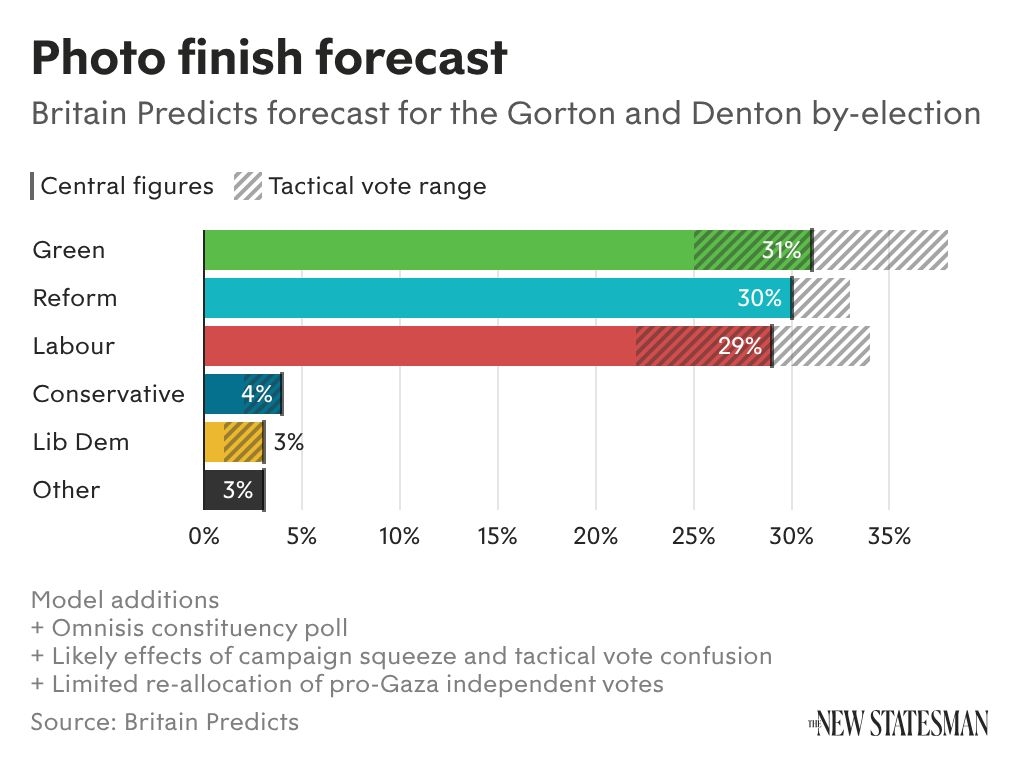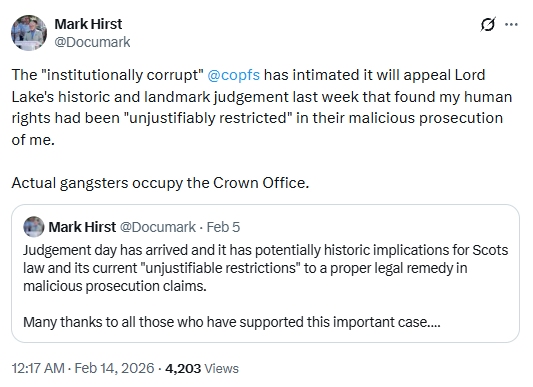Sean Bell: It is Police Scotland’s responsibility to answer to us, not vice versa
"It would appear that Police Scotland are more frightened of belligerent football fans than nonviolent anti-racist protestors. That may be entirely rational – one does not need to be an expert in urban pacification to conclude that the latter can be kettled and bullied far more easily than the former. This does not make the double standard any less grating." The post Sean Bell: It is Police Scotland’s responsibility to answer to us, not vice versa appeared first on Source.

NATIONAL ENVY can be an ugly thing. When one looks to another country and wonders why we cannot have what they have, the answers are rarely satisfying, nor is the exercise more constructive than looking instead to ourselves.
Sometimes, however, it is unavoidable. So it was yesterday (7 March): as much of Scotland watched crowds of Rangers fans celebrate their Scottish Premiership victory in Glasgow, in defiance of Covid restrictions, common sense and a curiously hands-off police presence, the United States was consumed by sporting controversy of a different kind.
On Sunday, professional wrestling fans were gripped by AEW Revolution 2021, a pay-per-view event culminating in a much-anticipated ‘exploding barbed wire deathmatch’ between champion Kenny Omega and challenger Jon Moxley, overseen by a referee in a hazmat suit. The ring, viewers were promised, was primed to blow up if the fight did not conclude within 30 minutes.
With seconds ticking away on the enormous doomsday clock above him, a bloodied Moxley appeared without hope – until fellow wrestler Eddie Kingston, Moxley’s former friend-turned-rival, attempted a desperate act of self-sacrifice and threw himself upon his companion’s prone body to shield him from the oncoming blast. Such moments in sport do not demand pundits, but poets.
Unfortunately, the ‘blast’ itself turned out to be a few puffs of smoke accompanied by what seemed to be four large sparklers. As pyrotechnics go, it would shame a backyard firework display. SBNation reported: “The conclusion of AEW Revolution was unquestionably one of the funniest things to happen in professional wrestling history, and it was completely unintentional.”
The question many across America are now asking is how a sport renowned for its devotion to ludicrous spectacle managed to deliver an insufficient number of explosions. Observing this from Scotland, it is difficult not to reflect on how nice it would be if our sporting culture had this kind of problem, as opposed to what Glasgow dealt with yesterday.
There were fireworks there, too. It should not need to be stated that there is something seriously wrong when greater safety can be found inside a wrestling ring than in the middle of George Square. Other than contravening Covid restrictions on public assembly, the mass gathering of thousands of Rangers fans prompted reports of vandalism, violence and racist abuse.
As the lawyer and human rights advocate Aamer Anwar noted, those right-wing protestors who rallied in ‘defence’ of the George Square Cenotaph last summer were strangely nowhere to be found last night, as public benches placed in memorial of lost loved ones were left smashed. One could almost speculate that either those erstwhile stalwarts of the ‘National Defence League’ were themselves among the revellers, or – faced with something slightly more intimidating than a nonviolent demonstration on behalf of asylum seekers – they proved themselves as cowards.
This evening, both Police Scotland and Depute First Minister John Swinney condemned Rangers for what Swinney described as their “lack of leadership” in failing to keep fans off the streets. At times like this, it is difficult not to think of Real Madrid and Barcelona, the two great Spanish teams who so often elicit comparison with the Old Firm. Yet the distinction worth bearing in mind in the days to come is that, in contrast to the Glasgow rivals, Real Madrid and Barcelona are owned by their club members. In their case, it renders them accountable to the fans who generate the enormous amounts of money that flow into the club coffers. Were such an arrangement pursued in Scotland, accountability of a different sort – such as for Sunday’s behaviour – might be achieved. I wouldn’t hold my breath, however.
Amongst all this, action – or lack thereof – from police was conspicuous. According to Chief Superintendent Mark Sutherland, Divisional Commander for Greater Glasgow Division, officers made a “small number of arrests” and issued fixed penalty notices for “breaches of the coronavirus restrictions, minor incidents of disorder and the use of pyrotechnic devices.” Those watching footage of the gatherings – or living in Glasgow themselves – could maybe be forgiven for focusing instead on the authorities’ remarkable and seemingly inexplicable restraint.
The response, from both politicians and wide swathes of the Scottish public, was swift. Green MSP Ross Greer warned on Twitter that he expected Police Scotland “to explain pretty quickly to Parliament why they decided to facilitate rather than disperse multiple mass gatherings during a national lockdown today”, while First Minister Nicola Sturgeon tweeted: “I share folks’ anger at this. Everyone has made so many sacrifices in the past year and seeing a minority risk our progress is infuriating and disgraceful.
“It is deeply unfair to the entire country, and the police have a hard enough job already.”
The first minister’s concern for the police and their jobs is predictable, but others – particularly those in Scotland who have been on the receiving end of a far less accommodating style of law enforcement – might be less sympathetic. As Orson Welles once put it, “I’m willing to admit that the policeman has a difficult job, a very hard job. But it’s the essence of our society that a policeman’s job should be hard.”
So hard is their job, it seems, that criticism of the police is enough for them to abdicate responsibility. Taking to Twitter, Scottish Police Federation chair David Hamilton replied to all who lacked faith in the force’s abilities: “Ok armchair Police Commanders/Keyboard Warriors. How would you have policed today…”
Challenging others to explain how they could do the job better than those currently empowered to enforce the law is a neat way of avoiding any specific criticisms a police force may face. It is a rhetorical tactic which has seen much play in the US, where cops who ride around in absurdly beweaponed military surplus vehicles with Punisher decals complain about the lack of respect they receive from those communities they victimise, and exhibit astonishing fits of pique whenever a politician shows anything other than grovelling genuflection.
Indeed, Hamilton’s sullen demand echoed those American commentators who snidely wondered what advocates of police abolition had to say in the aftermath of the siege of the US Capitol back in January. As it turns out, they had a great deal to say, starting with the fact that the enormous presence of armed Capitol Police did not appear to noticeably slow or repel the advance of far-right rioters – an observation which may chime with many Glaswegians after last night.
In any case, the answer remains the same: for now, keeping the peace is not the responsibility of activists or abolitionists. To suggest that critics of our present law enforcement have more questions to answer than the police themselves is nothing more than a shameless attempt to pass the buck.
Some have already highlighted another comment from Hamilton made during the outbreak of statue protests and Black Lives Matter activity last year: “When our politicians fail to condemn the actions of those who defy the law, we cannot be surprised that it is increasingly difficult for police officers to enforce the law. The public cannot expect the police service to turn a blind eye to those who break the law in the name of a particular cause whilst demanding different treatment for their opponents.”
His implication, all those months ago, was that the police would stand in sharp contrast with the equivocations and hypocrisies of the political class, and apply the law without favouritism. Even if there were those naïve enough to believe it at the time, such a claim cannot be made after the events of Sunday.
Ignoring the fact that the differences between political protest and celebrating a Premiership win are more than superficial, there is a further problem with the analysis of Hamilton and his sympathisers – those cheerfully oblivious Rangers fans who conquered much of Glasgow yesterday were emphatically not treated the same as last year’s protestors.
According to the Times, Hamilton has further argued today that police officers “could have turned a relatively contained rally into city-wide public disorder if they had tried to round up fans.” He may well be right. Had the police presence been more aggressive, more interventionist, it is not difficult to see events escalating into violence and bloodshed.
Nevertheless, such concern was not in evidence during last summer’s protests. The Glasgow demonstrations on behalf of refugees and Black Lives Matter in mid-2020 were, by all accounts, highly disciplined in their social distancing, right up until the police kettled participants – or, to put it another way, forced protestors in breaking Covid restrictions against their will, putting them at far greater risk in the process. Those who argued a strict adherence to the law requires treating BLM activists and far-right loyalists exactly the same seemingly had no problem with the police undermining the law themselves.
It would appear that Police Scotland are more frightened of belligerent football fans than nonviolent anti-racist protestors. That may be entirely rational – one does not need to be an expert in urban pacification to conclude that the latter can be kettled and bullied far more easily than the former. This does not make the double standard any less grating. When Police Scotland do use such tactics, they apparently do so at their own discretion – because they can get away with it.
I am not the person to offer advice on how best to celebrate a Rangers victory (nobody tends to ask Hibees anyway), nor do I have a magic solution to the long, difficult relationship Scotland has endured between football and public order (unless you count my idea of abolishing the sport entirely and encouraging its devotees to take up knitting), except to point to the words of Angela Davis: Security, of a kind so many in Glasgow yearned for yesterday, “is not possible as long as physical, mental and spiritual health of our communities is ignored.” Glasgow, and Scotland, has some work to do in that respect.
However, there are some things about which I feel greater certainty – namely, that any state which tolerates the existence of a police force does so at its own indulgence, not vice versa. Police, ostensibly, serve us. When concerns about the conduct and failures of law enforcement are raised, whether by politicians or the public, it should merit more than an irritable tweet. Those who possess badges and uniforms should not feel emboldened to employ the powers they bestow by a mere lack of resistance. And we should not be afraid to ask, when the question is unavoidable: what good do the police do for us anyway?
The post Sean Bell: It is Police Scotland’s responsibility to answer to us, not vice versa appeared first on Source.
What's Your Reaction?








































